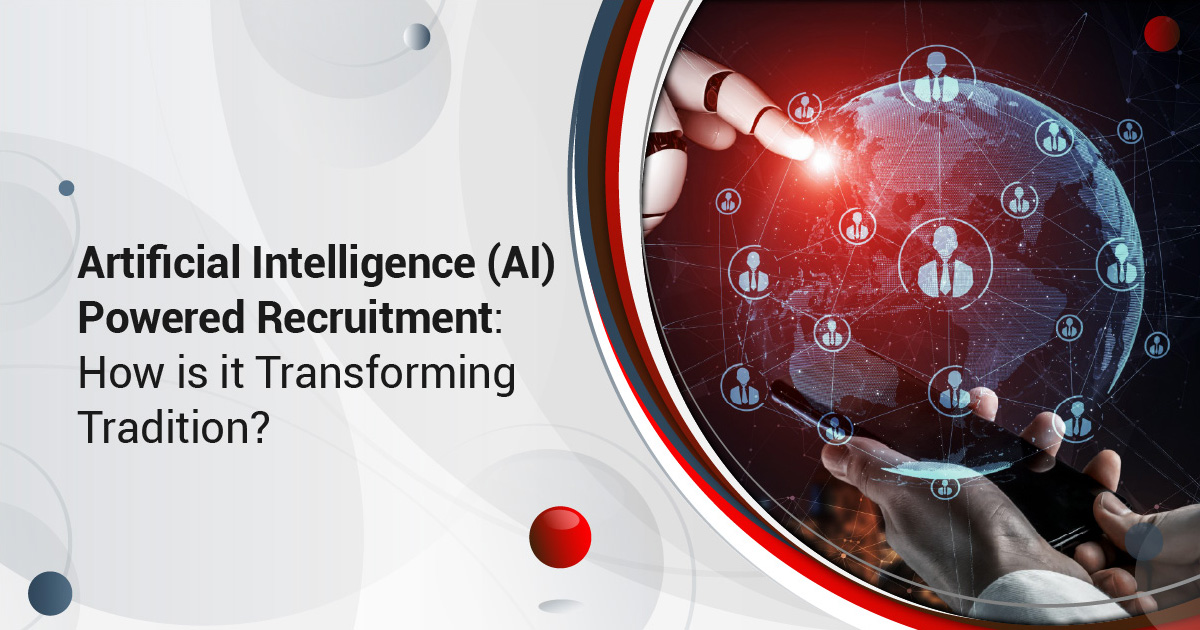The math is not kind to Singapore’s hiring managers. Top candidates receive multiple offers within days, and recruitment costs spiral upward as agencies charge premiums for scarce talent. Manual screening of hundreds of applications consumes weeks that companies cannot afford to lose.
Artificial Intelligence (AI), thankfully, offers a different equation. In a breath of fresh air for recruiters, modern AI systems identify passive candidates across dozens of platforms simultaneously, and process thousands of applications in minutes, not weeks.
Even better, companies using AI report candidates are 14% more likely to pass interviews and 18% more likely to accept job offers. In totality, the World Economic Forum (WEF) found that AI-powered systems can reduce hiring costs by up to 87.64% compared to traditional methods.
While Singapore is often a beacon for progressive business methodologies, only 15% of employers have formally implemented AI recruitment tools. However, 98% of HR leaders in Singapore report using AI in some capacity. This disconnect between experimentation and systematic implementation reveals barriers around cost, integration complexity, and talent shortages.
Smart organisations are already capitalising on this technology gap. Learning how AI powered recruitment is leading the way and how studying companies that have successfully implemented these solutions provides clear competitive advantages for securing better talent outcomes while reducing costs and improving efficiency in Singapore’s demanding market.

Key Takeaways
- AI streamlines hiring by automating tasks like candidate sourcing, resume screening, and interview scheduling, significantly reducing time and costs.
- Companies using AI report higher interview success rates and job offer acceptance, with the WEF noting up to an 87.64% reduction in hiring costs.
- Challenges like budget constraints, integration with legacy systems, and data privacy concerns hinder widespread AI implementation in Singapore.
- The most effective recruitment strategies combine AI’s efficiency with human oversight for cultural fit and relationship building.
- Singapore’s National AI Strategy and SkillsFuture initiatives aim to address talent shortages and equip HR professionals with AI expertise, positioning the nation as a leader in AI-powered recruitment.
The AI Revolution: From Manual to AI Powered Recruitment
Singapore’s traditional recruitment model is capable of creating bottlenecks at every stage. In a typical hiring scenario, HR teams manually post job advertisements, wait for applications to trickle in, then spend days screening CVs for obvious mismatches. Interview scheduling then becomes a coordination clash involving multiple stakeholders. Reference checks drag on for weeks, and top candidates often accept competing offers during these delays.
AI dismantles these inefficiencies through automation and predictive analytics. Machine Learning (ML) algorithms scan professional networks like LinkedIn, social media platforms, and specialised portfolio sites such as Behance for creative professionals or GitHub for technical talent. Natural Language Processing (NLP) tools can parse thousands of applications simultaneously, extracting key information and ranking candidates based on job requirements rather than simple keyword matching.
The technology also identifies “passive candidates” – highly qualified professionals not actively seeking new roles but open to compelling opportunities. It can potentially expand available talent pools beyond the limited set of active job seekers.
This more effective screening pays dividends in the interview stages of recruitment. WEF reports that candidates who successfully passed AI-led interviews had a 53.12% success rate in subsequent human interviews, compared to 28.57% for those shortlisted through traditional resume screening. This data suggests AI serves as a highly effective initial filter, allowing recruiters to focus time on candidates with verified competencies.
Singapore’s AI Adoption Reality: Progress and Barriers
The adoption paradox we mentioned earlier becomes clearer when examining what companies actually do with AI. Those using the technology focus on specific applications: 67% use AI for writing job advertisements, 52% for screening candidates, and 45% for conducting assessments. Writing job descriptions represents the easiest entry point, where HR professionals can simply copy requirements into ChatGPT and receive polished copy within seconds.
However, the barriers preventing deeper integration are problematic. A Hays survey revealed 35% of HR professionals cite budget constraints as their top concern when considering AI implementation. Enterprise-grade AI platforms carry substantial upfront costs, particularly challenging when recruitment agencies already charge 15-25% of annual salaries for their services.
Technical hurdles compound financial ones. From that same Hays study, 31% of HR teams struggle with integrating new AI tools into existing legacy systems, while 30% worry about data privacy and security when handling sensitive candidate information. These are all incredibly common and understandable obstacles.
Singapore’s AI talent shortage exacerbates these problems. 47% of businesses report insufficient local talent pools to support their AI ambitions, with more than half citing high salary expectations as a primary recruitment hurdle.
Thankfully, the Singapore government’s response targets these specific gaps. The National AI Strategy 2.0 aims to more than triple Singapore’s AI talent pool from 4,500 to 15,000 professionals, directly addressing the skills shortage that constrains enterprise adoption.
Balancing Innovation With Human Values

AI’s recruitment benefits come with legitimate concerns that Singapore companies must address. Nearly 60% of Singapore professionals believe AI-powered resume screening can be biased, requiring careful attention before widespread trust develops.
Recent research from the National University of Singapore (NUS) revealed a concerning phenomenon called “AI self-preferencing,” where AI systems consistently favour resumes generated by similar AI models over human-written applications. This bias could create unfair advantages for candidates who use compatible AI tools.
Singapore’s regulatory framework provides guidance for responsible implementation. The Personal Data Protection Commission released advisory guidelines on AI recommendation systems, emphasising transparency and consent requirements. The government’s Model AI Governance Framework promotes fairness, explainability, and human oversight in AI deployment.
The most effective approach combines AI efficiency with human judgment. AI handles data-intensive tasks like candidate sourcing and initial screening, while human recruiters focus on cultural fit assessment, relationship building, and complex decision-making that requires emotional intelligence and contextual understanding.
The Future of Singapore’s Talent Acquisition
Employers should look towards recruitment as not just filling vacant positions, but orchestrating talent strategies. Recruiters should now be interpreting data insights rather than manually sifting through applications. They should build relationships with candidates identified by algorithms, not discovered through scattered job board postings.
This evolution demands new capabilities – data literacy, AI tool proficiency, and the ability to translate algorithmic outputs into business decisions. Singaporean business leaders anticipate AI adoption will boost organisational productivity by 44% through task automation. The government’s SkillsFuture programmes address this skills gap directly, offering HR professionals training in AI implementation and ethical deployment practices. These initiatives develop “bionic recruiters” who blend technological proficiency with human judgment.
The big picture makes it clear that Singapore must advance its AI recruitment adoption, and will aim accordingly to become the region’s premier AI-powered talent hub through superior recruitment efficiency and candidate experience.
This positioning attracts global companies and skilled professionals, creating a reinforcing dynamic where better talent acquisition capabilities draw the very professionals needed to maintain market leadership. The nation that masters AI-driven recruitment first will attract both the best companies and the best people they seek to hire.
Related Read: What Are 5 Key Hiring Trends in Asia in 2025?
Where to Next With InCorp
Singapore’s recruitment landscape offers immense opportunities but also presents unique challenges. Companies that adapt quickly gain significant advantages in securing top talent, reducing hiring costs, and improving operational efficiency.
Related Read: 5 Ways Manpower Staffing Services Streamline Your Hiring Process
Many organisations understand the importance of modernising their recruitment strategies but lack the internal expertise to navigate the complexities of today’s talent market. Building recruitment capabilities requires specialised knowledge of industry trends, compliance with data privacy regulations, and seamless integration with existing HR systems. Recruiting the right talent in Singapore’s competitive market can be both costly and time-consuming.
InCorp’s recruitment specialists provide the expertise Singapore companies need to overcome these challenges. Our team understands the local regulatory environment, from PDPC guidelines to employment law compliance, and helps organisations implement tailored solutions that enhance hiring outcomes while maintaining ethical standards and candidate trust.
Rather than struggling with the complexities of talent acquisition alone, smart companies partner with experts who deliver results immediately. We transform recruitment into a strategic advantage, allowing you to focus on your core business operations while we handle the intricacies of modern hiring.
Contact InCorp today to discover how our recruitment expertise can streamline your hiring processes and secure the talent your business needs to thrive in Singapore’s competitive market.
FAQs about Artificial Intelligence (AI) Powered Recruitment
What are the main barriers to AI adoption in Singapore recruitment?
- Budget constraints affect 35% of HR professionals, while 47% of businesses report insufficient AI talent pools. Integration with legacy systems challenges 31% of teams, and data privacy concerns worry 30% of organisations.
Is AI recruitment legal under Singapore's data protection laws?
- Yes, the Personal Data Protection Commission provides clear guidelines for AI recommendation systems. Companies must obtain consent for data processing, maintain transparency about AI usage, and ensure appropriate human oversight in hiring decisions.
How does AI recruitment bias affect Singapore hiring practices?
- Research shows AI systems can favour AI-generated resumes over human-written applications. Singapore's Model AI Governance Framework promotes fairness and transparency, while 60% of professionals believe careful implementation is needed to address bias concerns.


